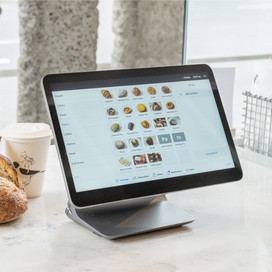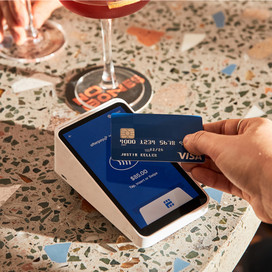Table of contents
Have you dreamed about turning that idea into a reality? Setting your own hours, creating work-life balance and paving your own path outside of the regular 9-5 grind? Social media has personified freelance hustle culture as an ever-shiny and highly sought-after career path. And while many have made it work, (you can too), it’s important to understand the incredible amount of work that goes into “going out on your own” – just ask any freelancer.
One of their biggest pain points? Finances. How do you manage the jump from regular income to sporadic pay cheques? What is the best way to balance business and personal finances? And how do you explain it to your family and friends? We have collaborated with financial adviser Victoria Devine, owner of Zella & She’s On The Money (SOTM) to answer your questions. Trust us, her insights are golden.
Victoria, over to you!
As freelancers, we tend to undervalue our worth and our work, but in business, you need to be your own cheerleader and shamelessly back yourself – nobody else will!”
Victoria Devine → Owner of Zella & She's On The Money (SOTM)
I’m thinking of making the jump into freelance work, but I’m scared…
Do it! Jumping all into freelance work is so exciting (congratulations!) To make it a little less daunting in those early days our advice would be to resist quitting your regular job just yet. It’s a great idea to see if there is a market for your business before committing to it completely; maybe you could work on your hustle after hours or on weekends and get it started that way while still enjoying the safety of your regular income.
How do I explain freelancing to my family and friends?
There can be a lot of stress and stigma when it comes to going out on your own; relatives or friends may question your decision to stray from the tried and true method of money-making.
While there can be more stress in running your own business, there can also be so much more opportunity and that is something worth celebrating! If you are feeling the weight of other people’s unwelcomed opinions, connect to the community. There are brilliant online communities of freelancers who support one another and keep each other motivated – seek them out and involve yourself as much as you can. Sharing experiences and knowledge is crucial – they may even be able to help navigate those tricky conversations!
This means managing my business and personal finances at the same time. Help!
Keep everything separate! When you’re starting out it can feel easier to lump business cashflow with your personal accounts, but this can make tax time an absolute headache! Plus, keeping your accounts separate will help you attain a better understanding of how your business is tracking.
Set up good financial practices early. Stay on top of your taxes, set up regular financial reviews and be organised with your receipts. Do a little work in the early days to get on top of your finances and then you’ll find those habits become second nature and not a hassle.
Don’t forget to pay yourself. Though it may be tempting to put everything back into the business, make sure you value yourself and pay yourself accordingly so you can increase your personal finances. Unfortunately business doesn’t always work out, and it would be detrimental to your personal situation if you hadn’t paid yourself through the duration of the business being in operation.
What is the biggest money pain point for freelancers?
The biggest money pain point we see freelancers experiencing is figuring out their financial worth at the beginning. So often freelancers undervalue themselves and should be charging significantly more than they are.
We tend to do this because we want to seem affordable to potential clients and we want them to choose us above other freelancers, but the risk in undervaluing our worth is that we pigeonhole ourselves into being an incredibly affordable choice. Then when we do feel comfortable enough to increase our hourly rate, clients may question what has changed in the service you provide to justify the price hike, and they might look elsewhere for the same service you provide.
*Tip: There is a link between the perception of quality and price, so don’t pitch too low! Know your worth, then add tax!*
I’ve got bills to pay! How can I manage an inconsistent income?
The best way to manage money when you are earning a variable income is to establish what you’re making on average and budget with that figure in mind – avoid living like a queen one month and then on a shoestring the next.
Tip: A simple way to figure out what your monthly average income looks like is to review your income over the last 3-6 months. Average that out by adding that income together, then divide it by the number of months. Voila! You have your average monthly income.
Another idea is to take the lowest month’s income and use that as your baseline, budgeting with that number in mind.

Top three money tips for freelancers?
- Don’t forget about tax!
Some of us forget when we’re not part of a larger business that we still need to pay tax. To avoid having to hand over a large chunk of money when it comes to tax time, put a little bit aside every month to cover your tax bill, or make quarterly payments to the ATO. - Stay on top of invoices and receipts
It can be easy to let invoices slide and misplace receipts. Set time aside every week or fortnight to have a little bit of an admin catch-up. It can be hard to carve out time for dull admin when you are super busy with more exciting parts of the business, so treat it like a meeting and block out space in your calendar! - Have an emergency fund
An emergency fund is a great thing to have when it comes to your personal finances and crucial when it comes to small businesses. Establishing a buffer to cover you in down periods or if you need to take some time out from work is a really clever way of giving yourself peace of mind.
I want to buy a house one day. Does being a freelancer affect my eligibility for a loan?
It can be a little trickier for freelancers to be approved for loans purely because their income won’t typically be as regular as a salaried earner. If you have an income that fluctuates, lenders may be reluctant to let you borrow as they have no guarantee of knowing you’ll be able to meet your repayments. That said, it certainly isn’t impossible! There are a few things you can do to put yourself in the best position to be approved for a loan, ensure you have a substantial deposit, and provide evidence of a strong income (tax returns from the last couple of years).
Should I outsource tasks so I can focus on my craft?
Outsourcing tasks within your business can be among the smartest moves you make because as a business owner, nothing is worth more than your time. Engaging smart people to help you in areas of your business that you don’t have time for anymore can be a gamechanger in taking your business to the next level (think a graphic designer to improve your website and increase the perception of your brand, or a financial advisor if you need help with your business direction).
Investing in great people is rarely a decision that’ll cost you money. That said, you need to know when the time is right to outsource certain tasks; ask yourself how much of your time it would take to perform the task you’re considering outsourcing, and establish how much that will cost you. If the cost of outsourcing is less than the cost of doing it yourself (and if the quality is enhanced) then you have your answer!
This article is only for educational purposes and does not constitute legal, financial or tax advice. Make sure you consult a professional regarding your unique business needs.
![]()









